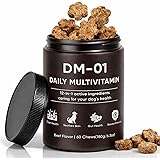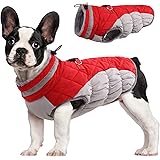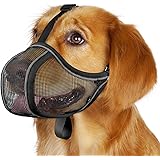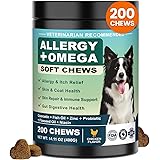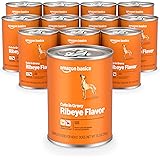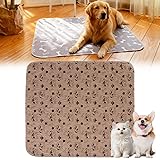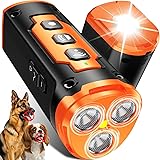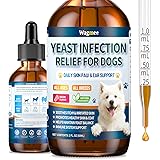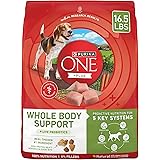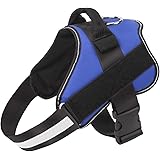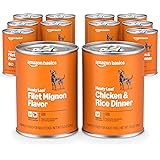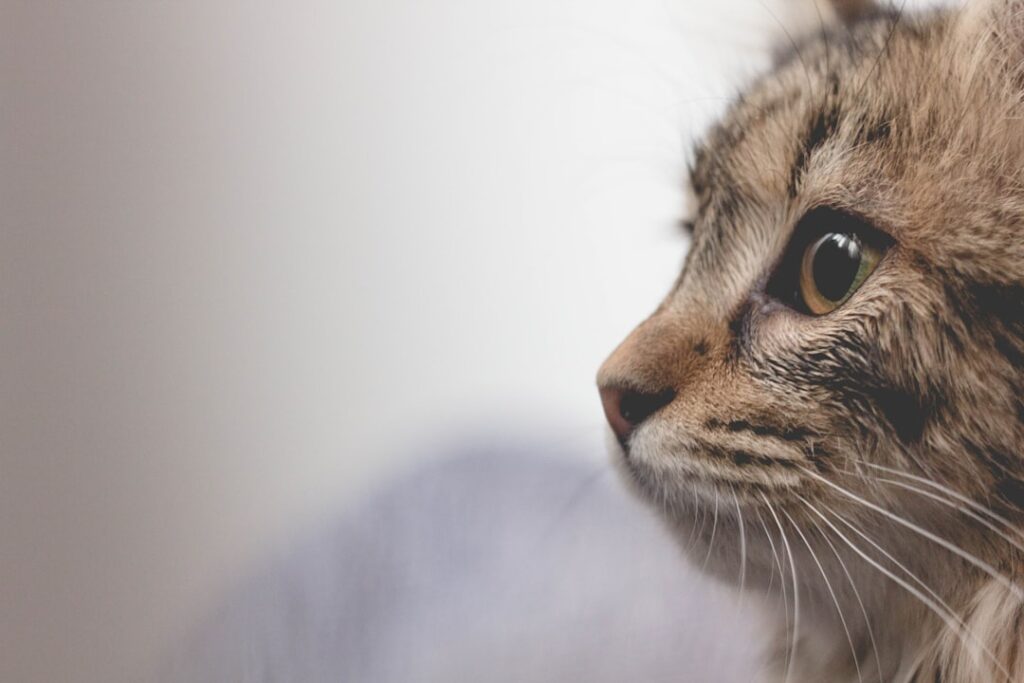
DreamBone Twist Sticks, Made With Real Chicken, Rawhide-Free Chews for Dogs, 50 Count
$8.39 (as of 02/08/2026 14:07 GMT +00:00 - More infoProduct prices and availability are accurate as of the date/time indicated and are subject to change. Any price and availability information displayed on [relevant Amazon Site(s), as applicable] at the time of purchase will apply to the purchase of this product.)EHEYCIGA Orthopedic Dog Beds for Extra Large Dogs 44x32Inch, Waterproof Memory Foam XL Pet Bed with Sides, Non-Slip and Egg-Crate Foam Big Dog Couch Bed with Washable Removable Cover, Grey
$29.99 (as of 02/08/2026 14:12 GMT +00:00 - More infoProduct prices and availability are accurate as of the date/time indicated and are subject to change. Any price and availability information displayed on [relevant Amazon Site(s), as applicable] at the time of purchase will apply to the purchase of this product.)DM-01 Daily Multivitamin, Multivitamin Itch Relief Chews for Dog, with Folic Acid, Salmon Oil, Chondroitin & Natural Vitamins, Skin and Coat Healthy, Digestive & Boost Immunity, 60 Chew (Beef)
$32.99 (as of 02/08/2026 14:07 GMT +00:00 - More infoProduct prices and availability are accurate as of the date/time indicated and are subject to change. Any price and availability information displayed on [relevant Amazon Site(s), as applicable] at the time of purchase will apply to the purchase of this product.)FUAMEY Dog Coat for Medium Dogs,Waterproof Dog Winter Jacket with Harness Built in Puppy Cold Weather Coats Reflective Pet Vest with Zipper Warm Fleece Dogs Snowsuit Windproof Red M
$30.33 (as of 02/08/2026 14:12 GMT +00:00 - More infoProduct prices and availability are accurate as of the date/time indicated and are subject to change. Any price and availability information displayed on [relevant Amazon Site(s), as applicable] at the time of purchase will apply to the purchase of this product.)Milk-Bone Soft & Chewy Dog Treats, Beef & Filet Mignon Recipe, 25 Ounce
$14.47 (as of 02/08/2026 14:07 GMT +00:00 - More infoProduct prices and availability are accurate as of the date/time indicated and are subject to change. Any price and availability information displayed on [relevant Amazon Site(s), as applicable] at the time of purchase will apply to the purchase of this product.)CuteBone Little Miss Sassy Pants Dog Leopard Print Dress Velvet for Small Dogs Girl Puppy Dresses Pink Dog Clothes CVA15XXS-D
$13.99 (as of 02/08/2026 14:12 GMT +00:00 - More infoProduct prices and availability are accurate as of the date/time indicated and are subject to change. Any price and availability information displayed on [relevant Amazon Site(s), as applicable] at the time of purchase will apply to the purchase of this product.)Mayerzon Dog Muzzle to Prevent Biting Scavenging Chewing, Soft Mesh Puppy Muzzles for Medium Large Sized Dogs, Breathable, Reflective, Adjustable Mouth Guard for Grooming Walking Training (M, Black)
$11.99 (as of 02/08/2026 14:07 GMT +00:00 - More infoProduct prices and availability are accurate as of the date/time indicated and are subject to change. Any price and availability information displayed on [relevant Amazon Site(s), as applicable] at the time of purchase will apply to the purchase of this product.)Dog Allergy Chews Omega 3 is Human Multivitamin Itch Relief Medicine for Dogs Itching Skin Relief and Aller Immune Pet Allergy Dog Anti Itch Chews Coat Licking Supplements Pills Meds Medicine for Dogs
$25.99 (as of 02/08/2026 14:07 GMT +00:00 - More infoProduct prices and availability are accurate as of the date/time indicated and are subject to change. Any price and availability information displayed on [relevant Amazon Site(s), as applicable] at the time of purchase will apply to the purchase of this product.)Amazon Basics Wet Dog Food, Cuts in Gravy, Ribeye Flavor, Made with Real Chicken and Beef, 13.2 oz can (Pack of 12)
$14.38 (as of 02/08/2026 14:07 GMT +00:00 - More infoProduct prices and availability are accurate as of the date/time indicated and are subject to change. Any price and availability information displayed on [relevant Amazon Site(s), as applicable] at the time of purchase will apply to the purchase of this product.)Vomiting is a common problem among cat owners. It can be distressing to see your beloved feline friend experiencing this uncomfortable and sometimes messy symptom. However, it is important to understand that vomiting in cats can be caused by various factors. By understanding the causes of vomiting, cat owners can take preventative measures to help alleviate this issue and keep their cats healthy.
Key Takeaways
- Vomiting is a common problem among cat owners, but it can have various causes.
- Food allergies and intolerances, overeating and obesity, hairballs and gastrointestinal blockages, infections and diseases, medications and toxins, and behavioral issues can all contribute to vomiting in cats.
- Signs of serious conditions, such as persistent vomiting, lethargy, and loss of appetite, require veterinary attention.
- Preventative measures, such as feeding a balanced diet, providing plenty of water, and regular exercise, can help reduce the risk of vomiting in cats.
- Home remedies, such as feeding small, frequent meals and using hairball remedies, can also be effective in managing vomiting in cats.
Understanding Normal Feline Digestion
Cats have a unique digestive system that is different from humans and other animals. They are obligate carnivores, which means they require a high-protein diet to thrive. Their digestive system is designed to digest and absorb nutrients from animal-based protein efficiently.
Unlike humans, cats have a shorter digestive tract, which allows them to process and eliminate food quickly. This is why cats are known for their fastidious grooming habits and their tendency to vomit hairballs. Additionally, cats have a higher stomach acidity compared to other animals, which helps them break down proteins more effectively.
Food Allergies and Intolerances: Common Culprits of Vomiting
Food allergies and intolerances can be common causes of vomiting in cats. Just like humans, cats can develop allergies or sensitivities to certain ingredients in their food. Common symptoms of food allergies or intolerances include vomiting, diarrhea, and skin irritation.
If you suspect that your cat may have a food allergy or intolerance, it is important to consult with your veterinarian. They may recommend switching your cat to a hypoallergenic diet that eliminates common allergens such as grains or certain proteins. This can help alleviate the symptoms and prevent further episodes of vomiting.
Overeating and Obesity: Contributing Factors to Vomiting
| Contributing Factors | Description |
|---|---|
| Emotional Eating | Eating in response to emotions such as stress, anxiety, or depression. |
| Genetics | Having a family history of obesity or overeating can increase the likelihood of developing these conditions. |
| Sedentary Lifestyle | Lack of physical activity can contribute to weight gain and obesity. |
| Poor Diet | Consuming high-calorie, high-fat, and high-sugar foods can lead to overeating and obesity. |
| Medical Conditions | Certain medical conditions such as hypothyroidism or Cushing’s syndrome can contribute to weight gain and obesity. |
Overeating and obesity can also contribute to vomiting in cats. Cats have a natural instinct to eat small, frequent meals throughout the day. However, some cats may overeat if they are given unlimited access to food or if they are fed large meals at once.
Overeating can lead to vomiting as the stomach becomes overloaded and cannot handle the excess food. Additionally, obesity can put strain on the digestive system and lead to various health issues, including vomiting.
To prevent overeating and obesity, it is important to feed your cat smaller, more frequent meals throughout the day. This mimics their natural feeding behavior and helps prevent them from overeating. It is also important to monitor your cat’s weight and ensure they are maintaining a healthy weight through proper diet and exercise.
Hairballs and Gastrointestinal Blockages: Causes of Vomiting
Hairballs and gastrointestinal blockages are common causes of vomiting in cats. Cats groom themselves by licking their fur, which can lead to the ingestion of loose hair. This hair can accumulate in the stomach and form hairballs, which can cause irritation and vomiting.
To prevent hairballs, regular grooming is important. Brushing your cat’s fur helps remove loose hair before they have a chance to ingest it. Additionally, feeding a high-fiber diet can help move hair through the digestive system more efficiently.
In some cases, hairballs can lead to gastrointestinal blockages if they become too large or get stuck in the intestines. This can be a serious condition that requires veterinary intervention. Surgery may be necessary to remove the blockage and alleviate the vomiting.
Infections and Diseases: Serious Causes of Vomiting

Infections and diseases can also cause vomiting in cats. Conditions such as kidney disease, pancreatitis, or inflammatory bowel disease can lead to chronic vomiting. Other symptoms may include lethargy, loss of appetite, and dehydration.
If your cat is experiencing persistent vomiting or other concerning symptoms, it is important to seek veterinary attention. These conditions require proper diagnosis and treatment by a veterinarian. They may recommend blood tests, imaging, or other diagnostic procedures to determine the underlying cause of the vomiting.
Medications and Toxins: Possible Triggers of Vomiting
Certain medications and toxins can cause vomiting in cats. Cats are more sensitive to certain substances compared to humans, so it is important to keep medications, household cleaners, and other potentially toxic substances out of their reach.
Common culprits of accidental ingestion include household cleaners, plants, and human medications. If you suspect that your cat has ingested something toxic, it is important to contact your veterinarian immediately. They can provide guidance on what steps to take and whether emergency treatment is necessary.
Behavioral Issues: Anxiety and Stress-Related Vomiting
Anxiety and stress can also cause vomiting in cats. Cats are sensitive creatures and can be easily stressed by changes in routine, loud noises, or new environments. This stress can manifest as vomiting or other behavioral issues.
To help reduce stress-related vomiting, it is important to identify and minimize stressors in your cat’s environment. This may involve creating a calm and quiet space for your cat, providing hiding spots or perches, or using pheromone diffusers to create a sense of security.
When to Seek Veterinary Help: Signs of Serious Conditions
While occasional vomiting may not be a cause for concern, there are certain signs that indicate a serious condition that requires veterinary attention. These signs include persistent vomiting, blood in vomit, lethargy, loss of appetite, or dehydration.
If your cat is experiencing any of these symptoms, it is important to seek veterinary help as soon as possible. These signs may indicate a serious underlying condition that requires proper diagnosis and treatment by a veterinarian.
Preventative Measures and Home Remedies for Vomiting in Cats
Preventative measures can help reduce the risk of vomiting in cats. Feeding a high-quality diet that meets their nutritional needs is essential. It is also important to maintain a healthy weight through proper diet and exercise.
Home remedies can also help alleviate vomiting in cats. Feeding small amounts of plain, cooked chicken can help settle their stomachs. Providing plenty of fresh water is also important to prevent dehydration.
However, it is important to note that home remedies should only be used under the guidance of a veterinarian. They can provide specific recommendations based on your cat’s individual needs and health condition.
In conclusion, vomiting is a common problem among cats, but understanding the causes can help prevent it from happening. From food allergies to serious diseases, there are various factors that can contribute to vomiting in cats. By taking preventative measures and seeking veterinary attention when necessary, cat owners can help keep their feline friends healthy and happy.
FAQs
What causes cats to vomit after eating?
There are several reasons why cats vomit after eating, including eating too quickly, eating too much, food allergies, hairballs, gastrointestinal issues, and underlying medical conditions.
What are the symptoms of cat vomiting after eating?
The symptoms of cat vomiting after eating include regurgitation of food, retching, coughing, and gagging. Other symptoms may include lethargy, loss of appetite, and dehydration.
How can I prevent my cat from vomiting after eating?
To prevent your cat from vomiting after eating, you can feed them smaller meals throughout the day, slow down their eating pace, and avoid feeding them foods that may trigger allergies or gastrointestinal issues. You can also provide your cat with hairball remedies and ensure they have access to plenty of water.
When should I take my cat to the vet for vomiting after eating?
If your cat is vomiting after eating frequently or if they are showing other symptoms such as lethargy, loss of appetite, or dehydration, it is important to take them to the vet. Additionally, if your cat has underlying medical conditions, it is important to seek veterinary care.
What can the vet do to treat my cat’s vomiting after eating?
The vet may perform diagnostic tests to determine the underlying cause of your cat’s vomiting after eating. Treatment may include medication, dietary changes, or surgery, depending on the cause of the vomiting. It is important to follow the vet’s recommendations for treatment to ensure your cat’s health and well-being.



